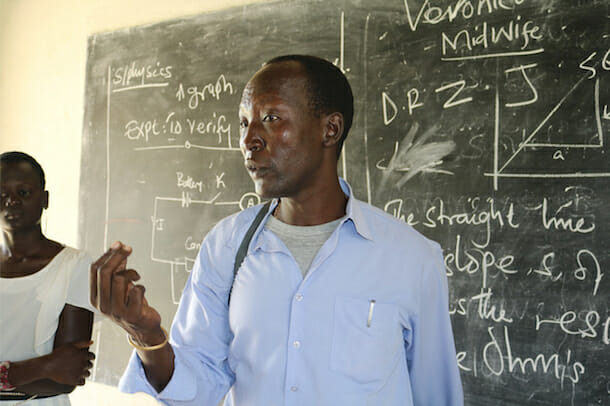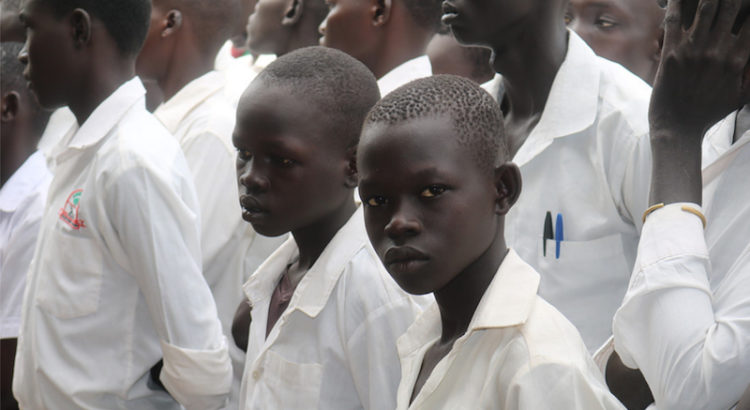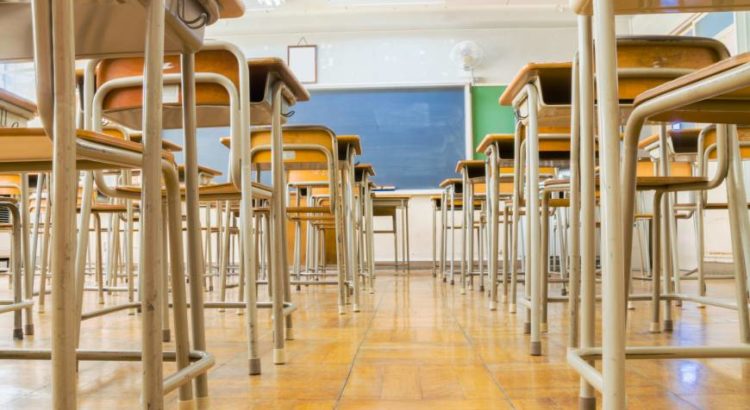South Sudan/March 19, 2018/International Policy Digest
Resumen: La mayoría de las discusiones sobre el desarrollo en Sudán del Sur giran exclusivamente en torno a la seguridad, la inversión extranjera y la ayuda. Los esfuerzos a gran escala, como la infraestructura, el cuidado de la salud y el comercio, deberán dirigirse a nivel nacional con el respaldo de inversiones de socios internacionales. Sin embargo, hay muchos desafíos de capacidad institucional y humana que se abordan mejor a nivel local. Focalizar la inversión en esfuerzos locales de pequeña escala puede hacer crecer economías que sean más sostenibles y que estén en mejores condiciones para adaptarse a futuros grandes planes de desarrollo.
Most discussions about development in South Sudan revolve exclusively around security, foreign investment and aid. Large-scale endeavors such as infrastructure, health-care, and trade will have to be directed at the national level supported by investments from international partners. However, there are many institutional and human capacity challenges that are better addressed at the local level. Targeting investment into small-scale local efforts can grow economies that are more sustainable and better able to adapt to future large development plans.
The African Development Bank, in “Infrastructure Action Plan in South Sudan: A Program for Sustained Strong Economic Growth,” identifies four broad areas where developing countries need to focus attention to grow into a successful middle-income country: well-functioning public and private institutions; well developed basic infrastructure; a stable macroeconomic framework; and a healthy and literate labor force.
On a macro-level, terms like well-functioning, developed, healthy, and stable are not used to describe any aspect of the Republic of South Sudan’s economy or government. However, at the local, micro-level, there are glimpses of civil society taking responsibility for local needs.
The most debilitating problem facing the new republic is its lack of internal security. The ongoing civil war atrocities undermine the economy & make a stable nation impossible.
Only after peace is secured can large-scale infrastructure programs commence. With the exception of China, other countries do not feel secure in investing their resources in South Sudan. Until the country can germinate its own industries, it will need to foster relationships with outside investors to build its economy and train its labor force. Diversification will be the foundation on which this economy will stabilize, not one dependent on oil. South Sudan will need to refocus its public expenditures on developing a strong education system to assure that the workforce can sustain domestic civil engineering projects, agriculture, healthcare, and technology sectors.
Even if the national government could redistribute its expenditures immediately, developing a new country from scratch is an immense endeavor. Development cannot be only top-down, but also must emerge from regional and local populations. Institutional and human capacity building will be most sustainable if it originates at the local level.
Across South Sudan, local communities are mobilizing themselves to provide universal education, suspend child marriage, enact gun control and develop businesses. In one of South Sudan’s largest cities, Rumbek, local residents, churches, and NGOs are working with the Rumbek and Lakes government to find creative ways to address contentious cultural issues and provide for the basic needs of the people.

(Abukloi Enterprises)
Motivated by UN Peace Conferences, schools are creating “Peace Clubs” and using classroom time to discuss conflict resolution techniques. Students participate in local and regional debates about political and cultural issues. They use their education to challenge long-standing cultural practices and empower their families to engage in new practices for everyday living.
Rumbek’s Abukloi Secondary School has developed innovative ways to build local capacity to solve problems. Abukloi is tackling food insecurity by using its school grounds as an agricultural training center. Students implement their science curriculum knowledge in the school gardens. Produce from the garden is sold at market and used to sustain the school project, thus exposing the students to the entire business cycle.
They then encourage one another to share and implement these ideas at home. With the help of funding from an American NGO, the school sponsors a women’s community garden that not only teaches sustainable agriculture practices, but also teaches the young women how to market their produce and manage their business and personal funds.
Business training goes beyond agriculture. Abukloi has developed a sewing program and internet café. Both projects employ community business people to train students, teaching them tangible skills they can expand upon to create businesses for themselves. Furthermore, their curriculum has students work in teams to develop business plans.
The most promising plans are loaned start-up funds by the NGO so not only will students have a job upon graduation, but they will also be able to employ others in their community.
The beneficial returns on this educational model are exponential. First, young women are encouraged to stay in school and participate in every aspect of the school’s programs. Educating women changes the cultural norm, encourages the older generation to take time to learn new skills and passes the value of education on to the next generation.
They are also addressing food insecurity without the direct aid of government or multinational organizations. This empowers the local population to demand the resources they need from the regional or national government deepening political participation and expanding political consciousness.
By teaching basic business skills, students also expand their creativity and problem-solving skills. By creating businesses, the community is literally creating its own economy: generating demand for goods and services that others will be inspired to provide.
The focus of economic and social development should not rest solely in the hands of NGOs. Investing in local communities throughout South Sudan can empower the people to understand and solve basic needs. It can create a new vision for how to confront difficult issues, provide a fair and stable government, and be the foundation for a lasting peace among all South Sudanese.










 Users Today : 30
Users Today : 30 Total Users : 35459625
Total Users : 35459625 Views Today : 72
Views Today : 72 Total views : 3418044
Total views : 3418044